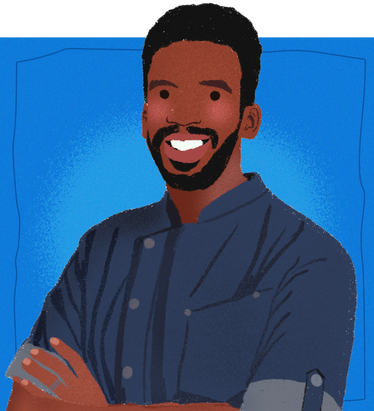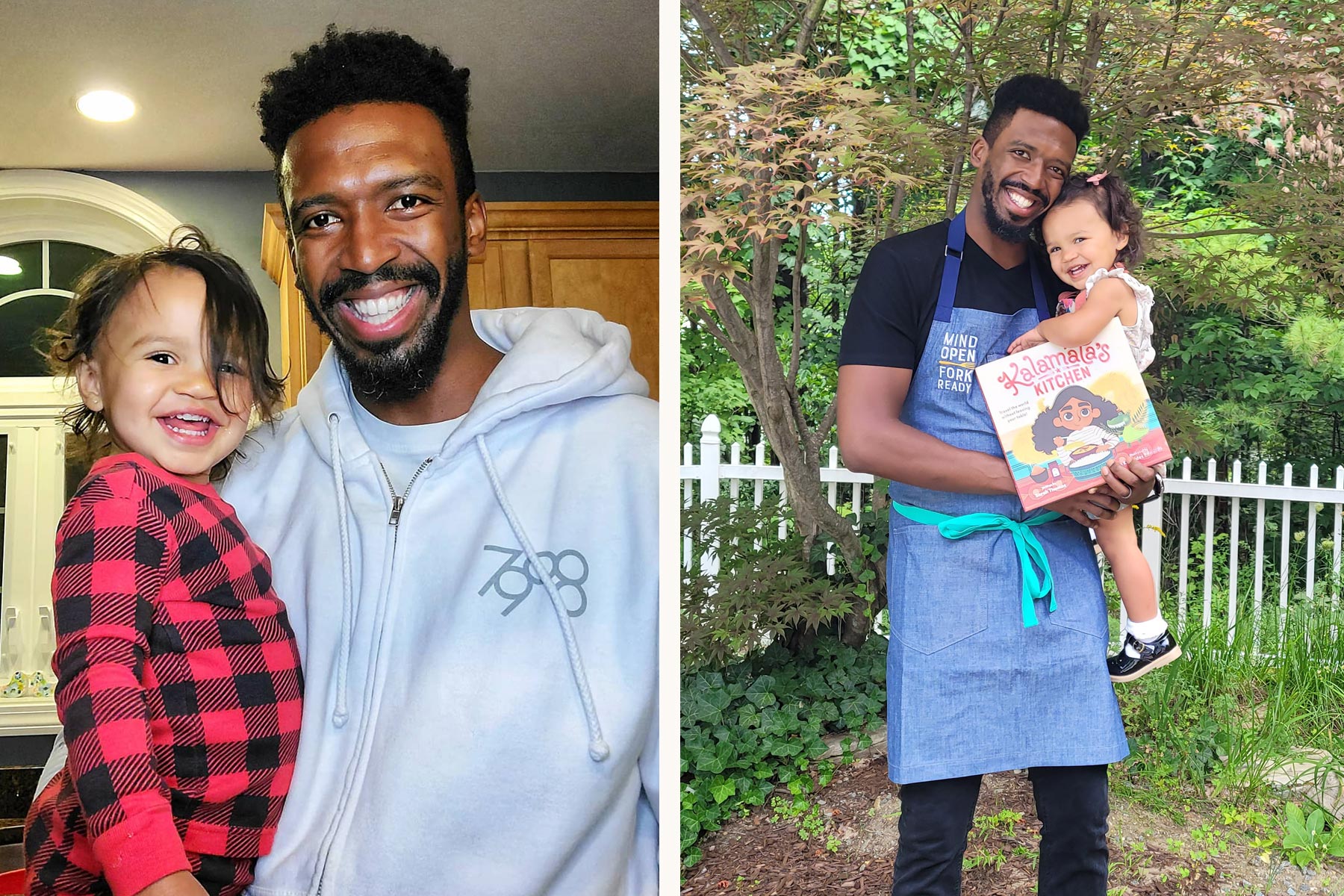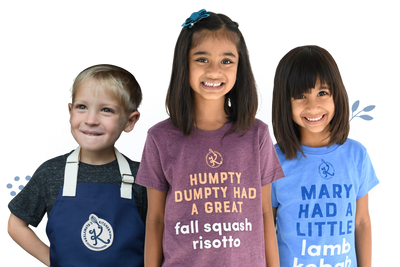
Taste Bud Profile
Chris Viaud

While Chef Chris Viaud was in culinary school, he was told that to become a chef, he’d have to master French and Italian cooking techniques. Upon realizing that he wanted to explore and share the flavors that he loved when growing up, he decided to study the ingredients and techniques used by his mother, grandmother, and generations of Haitians to make their food. Chef Chris believes in respecting the food traditions of all cultures, as well as building community through these shared experiences. He tells his story and his family’s story through food, and believes that all of us can benefit from sharing our food traditions with our communities.



Chris Viaud: As a child, I remember being in the kitchen with my mom, and she’d give me the task of grinding up herbs and spices in her pilon, which is a mortar and pestle traditionally used in Haiti. It’s one of the things Haitian immigrants always have in their kitchens, as memorabilia but also for their actual food traditions. I’d use the pilon to help make marinades for whatever we were eating. At the time, I never understood the impact this traditional act had on me—I just thought of it like “I’m in the kitchen helping mom, so she doesn’t have to do everything alone.” My mom did a lot for us as kids, and I just wanted to help her out as much as I could. My siblings don’t have the same connection to food through time spent in the kitchen, but they certainly do through eating. We ate dinner together as a family every evening, and had a big special Sunday meal as well. We would eat together, swap stories, pray, and have really quality family time.

Those Sunday meals were really something special—you could always expect to see rice and beans, cornmeal called mayi moulen, twice-fried-pork known as griot, or poulet nan sos, which is chicken braised in a pepper and tomato-based sauce. We might also have fish, or another meat marinated in garlicky epis, or on very special occasions, lambi, which is conch. No matter the specific dishes on the table, we grew up surrounded by aromatic foods that I loved, and I appreciate even more now that I don’t have regular access to them. It tied us together—we learned about the importance of family, respecting one another, and knowing there was a time for everything: a time to play, time to work, and time to eat.

There are various degrees of separation for representation of cultures in the food community. When I started my professional career, there was this mindset that you had to really know French and Italian cuisine and technique in order to make it as a chef. Now, we’re flipping the script. There are so many incredible people really digging into their own heritages, wanting to learn and appreciate more about the food that they grew up eating, wanting to pay homage to those flavors and techniques, and wanting to make sure they’re not lost with previous generations. I realized at some point that I had done a series of Haitian dinners, but that they were really just my interpretation of Haitian flavors as I understood them. I had never taken the deep dive into the original flavors or techniques used by my parents or their parents. I took a step back, and decided that if I wanted to cook Haitian food, I had to get back to the roots. I went to my mom and my grandma, and I asked if they’d share their stories. Their willingness to share their stories, recipes, and techniques inspired me to want to share with my siblings and with my daughter, once she’s old enough to understand. To me, it’s about understanding the importance of growth through community, growth through food, and also understanding and being able to honor and cherish where you came from.

As immigrant communities, we have to be willing to share our stories. If we stay silent, we aren’t encouraging people to want to know more.
Once we start using the power of our voices to share our memories and traditions that we share so much, we get people interested and engaged—and we build community. Getting people excited means having that enthusiasm yourself—that excitement is the invitation to learn more, and to grow. We can use food to include the entire community, making families feel welcome and involved, which builds the community structure. If you can make your message resonate in your community, it will be respected, people will want to learn more, and people will want to share as well. That’s really where the idea for Ansanm came from—the word means “together.” During lockdown, we decided to do a family cooking class where my siblings and I could all learn from my mom over zoom. I decided that since it was online anyway, we should open it up to the community. I figured, even if only 5 people are interested, we’ll still have this family experience of cooking together and learning from my mom. Instead, we had over 100 orders. My family and I scrambled to work together to create these experiences for people, and I realized we could have something really special—all of us working together to share our culture through food with our greater community. I want to eventually be able to expand this even further outside of our local community, to be able to expose our culture and our stories to larger and larger groups of people.

Never shy away from your heritage. Your heritage and your family will keep you grounded and humble. I think about the fact that when my siblings and I hit our teenage years, we started rejecting my mom’s food and asking for things like pizza and grilled cheese. As a parent, you’re almost forced to conform, to give in to what your American kids want to eat. As an adult, and as a chef, I’ve tried to be very self-reflective. It has given me the perspective to look back and say that the early memories of food and family that I have are really the ones that shaped me, and that I cherish above all others, even though I didn’t know it then. I think it’s powerful when parents are able to insist on their kids being proud of where they come from, and to encourage them to honor and share that. I think it’s important for that message to be spread—don’t let your environment force you to conform or hide what’s special about you. Instead, share those stories, and grow with your community.

